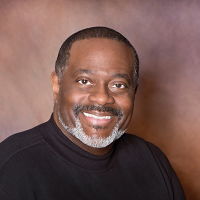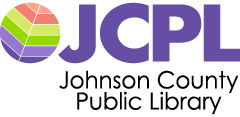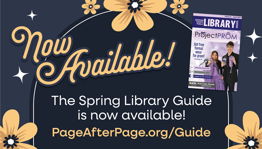
Edward Kelsey Moore is the New York Times best-selling author of "The Supremes Sing the Happy Heartache Blues" and "The Supremes at Earl’s All-You-Can-Eat.” He is a professional cellist who has performed with acclaimed midwestern orchestras including Chicago Sinfonietta, the Joffrey Ballet Orchestra and the Chicago Philharmonic. His award-winning essays and short fiction have appeared in The New York Times and a number of literary magazines, including Ninth Letter, Indiana Review, African-American Review and Inkwell. Edward grew up in Indiana and received a Bachelor of Music degree from Indiana University. This program is supported by a Novel Conversations grant from Indiana Humanities.
Read our interview with the author before his visit at the White River Branch on April 21.
Johnson County Public Library: Where did you first get the idea to write a book?
Edward Kelsey Moore: I have loved reading and been fascinated by words since I was very young. Also, I come from a family that is filled with talented storytellers. Writing novels has always felt like the inevitable result of the various parts of my nature coming together.
JCPL: Have you always been a writer or did you discover an interest for it later in life?
EKM: I have written stories and essays since I was a child. What changed in later life was that I was able to finish the projects that I began. I have hundreds of unfinished stories and essays written over the course of almost three decades. It was only with maturity and the patience that came with it that I could get myself to sit down and complete the things I started.
JCPL: How did you get started writing? Was your short essay the first thing you wrote?
EKM: Most of my early writing consisted of short stories that I wrote for literary contests. I won the first one I entered, Chicago Public Radio’s “Stories on Stage” Short Story Contest, and never won another after that. However, my first published story, the winning entry to that contest, received a lot of positive attention and I got a lot of encouragement to write more. Eventually, several of my short stories and some essays were published in different magazines. That really started the ball rolling for me and gave me the confidence needed to write longer works.
JCPL: How do you balance being a full-time musician and writing? Do you take a break from music to write?
EKM: After several years of working as both a musician and a writer, I have finally come to accept the fact that there is, and never will be, any balance. I am sometimes forced to take a break from playing the cello to travel or to finish a project. At other times, I have to stop writing in order to practice and play a concert. Music is wonderful and so is literature, but careers in the arts are never easy or convenient. When things get hectic, I try to remember how very lucky I am to have two jobs that I love.
JCPL: How long does it take you to write a book?
EKM: My first book took about three years to write. My second book took slightly less time. It looks like the novel I’m working on now will take me about two years to complete.
JCPL: Could you tell us a little bit about your writing process?
EKM: I begin with my characters. I try to understand who they are and what they want. Once my characters begin to materialize and the big emotional moments of the book come to me, I picture the book like a movie in my head. Then, I make a detailed outline. After that, I start from the beginning, writing each chapter. Of course, as the book comes along and I learn more about my characters, many parts of the outline are thrown aside. The outline is a security blanket for me. There always comes a point when I don’t need it at all, but I like knowing it’s there.
JCPL: "The Supremes at Earl’s All-You-Can-Eat" has been optioned for a film adaptation. What all goes into making this film? How much are you hoping to contribute to the film?
EKM: The literary world and the film world are very separate. My involvement in the film will be limited to providing the source material, which is the case with the vast majority of authors whose work is optioned for film. While I hope that they do a great job with the movie, I accept that it is totally out of my hands now and I’ve let it go.
JCPL: How do you feel about libraries? Do you spend a lot time at libraries?
EKM: I love libraries. I’ve often said that I wouldn’t be a reader, much less a writer, if it weren’t for libraries. The first clear memory of my entire life is the day my mother took me to get my first library card at the central library in Indianapolis. To this day, I am probably more comfortable in a library than any other place. Even though I have a nice office at my home, I do most of my writing in my neighborhood library. There’s a unique energy in libraries that I find really helpful and exciting as a writer.
JCPL: What other authors influence your work and why?
EKM: My biggest influences are probably the writers whose work I encountered as a young reader. Those are the authors who inspired me to want to make up stories and write them down. I started reading Charles Dickens when I was a child. I’ve continued to re-read his work throughout my life. I love the way he mixed humor with tragedy and the way he created indelible characters with just a few telling details. I have loved Toni Morrison since I was a teenager. I admire how there isn’t a wasted word in her writing. I’ve read Morrison’s "Sula" more times than any other book and I respect it more each time. It’s perfect. While I can’t imagine ever producing work as accomplished as that of my literary idols, reading and re-reading their novels makes me demand more of myself.


